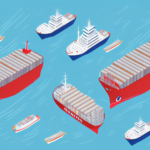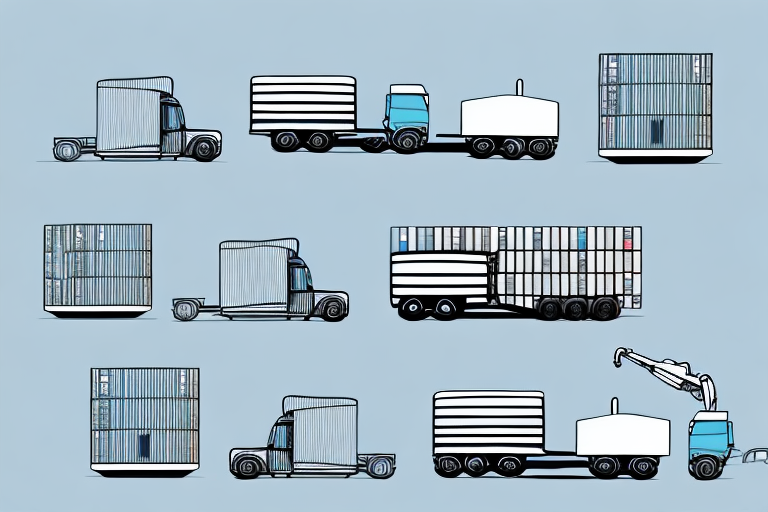Understanding the Role of Carriers in Transportation Logistics
Carriers are integral to the transportation logistics chain, responsible for moving goods from one location to another efficiently and securely. They utilize various modes of transportation, including air, sea, and land, each offering distinct advantages based on the nature of the goods and the distance involved. Effective carrier management ensures that shipments are delivered safely, on time, and in compliance with all relevant regulations.
Types of Carriers and Their Specializations
Air Cargo Carriers
Air cargo carriers are known for their speed, making them ideal for transporting high-value or time-sensitive goods. While more expensive than other modes, they offer unparalleled delivery times, especially for international shipments.
Shipping Lines
Shipping lines handle the transportation of goods by sea, accommodating large volumes and heavy cargo. This mode is cost-effective for long-distance and bulk shipments, though it typically involves longer transit times compared to air freight.
Trucking Companies
Trucking companies are essential for land transportation, particularly for short to medium distances. They offer flexibility in route selection and can handle a wide range of cargo types.
Rail Carriers
Rail carriers provide a cost-effective solution for transporting large quantities of goods over long distances. They are particularly advantageous for heavy and bulk items, offering reliable schedules and significant capacity.
Intermodal Carriers
Intermodal carriers combine multiple transportation modes, such as trucks, trains, and ships, to optimize efficiency and reduce the carbon footprint. This flexibility allows for tailored transportation solutions that can adapt to various logistical challenges.
Choosing the Right Carrier for Your Shipment
Assessing Carrier Reputation and Reliability
When selecting a carrier, it's crucial to evaluate their track record, experience, and reliability. A reputable carrier with positive customer reviews is more likely to handle your goods with care and deliver them on time.
Cost Considerations
While cost is a significant factor, it should not be the sole determining factor. Balancing cost with service quality ensures that you receive value without compromising on delivery standards.
Customer Service and Support
Excellent customer service can make a substantial difference, providing timely updates and addressing any concerns promptly. A carrier with robust support systems can facilitate smoother transportation processes.
Environmental Impact
Choosing carriers that prioritize sustainability can help reduce your company's carbon footprint. Look for carriers that implement eco-friendly practices, such as using alternative fuels or offering carbon offset programs.
Preparing Your Shipment for Transportation
Proper Packaging and Labeling
Ensuring that your goods are packaged correctly is essential to prevent damage during transit. Use appropriate materials based on the mode of transportation and the fragility of the items. Clear labeling aids in quick identification and tracking.
Accurate Documentation
Providing complete and accurate documentation, including bills of lading and customs paperwork, is vital for seamless transportation. Proper documentation helps avoid delays and ensures compliance with international shipping regulations.
Understanding Destination Regulations
Researching and adhering to the destination country's import regulations and restrictions is crucial. Non-compliance can result in delays, fines, or seizure of goods by customs authorities.
Documentation and Compliance in Shipping
Key Documentation Requirements
- Bill of Lading
- Commercial Invoice
- Certificate of Origin
- Customs Declarations
- Insurance Certificates
Accurate documentation ensures that all necessary information about the shipment is available, facilitating smooth transportation and customs clearance.
Regulatory Compliance
Compliance with transportation regulations is non-negotiable. This includes adhering to safety standards, environmental regulations, and specific industry requirements. Non-compliance can lead to legal repercussions and shipment delays.
Managing Shipping Delays and Unexpected Issues
Common Causes of Shipping Delays
- Inclement Weather
- Customs Delays
- Mechanical Failures
- Traffic Congestion
Understanding the common causes of delays can help in planning and mitigating potential disruptions.
Carrier Contingency Plans
Carriers often have contingency plans to address unexpected issues, such as rerouting shipments or utilizing alternative transportation methods. Maintaining open communication with your carrier ensures that you are informed of any changes promptly.
Implementing Your Own Contingency Plans
Developing backup plans, such as having alternative carriers or adjusting delivery schedules, can help manage delays effectively and minimize their impact on your supply chain.
Leveraging Technology and Best Practices in Transportation
Advanced Tracking Systems
Modern tracking tools, including GPS and real-time monitoring, provide visibility into the shipment's progress. These systems enable proactive management of the transportation process and timely interventions if issues arise.
Automation and Digital Documentation
Automation in documentation, such as electronic bills of lading and digital customs forms, streamlines processes and reduces the likelihood of errors. This leads to faster processing times and enhanced efficiency.
Supply Chain Optimization
Utilizing data analytics and supply chain management software can optimize routing, inventory management, and overall logistics strategies, resulting in cost savings and improved service levels.
Conclusion
Delivering your goods to a carrier for transportation involves strategic planning and meticulous execution. Selecting the right carrier, preparing your shipment accurately, and ensuring compliance with documentation requirements are critical steps in the process. By staying informed about industry advancements and leveraging best practices, you can enhance the efficiency and reliability of your transportation logistics, ensuring that your goods reach their destination safely and on time.








